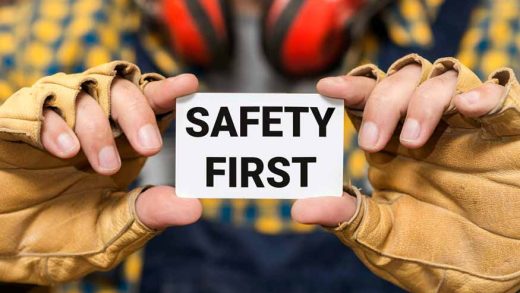Eye contact is one of the skills that make us socially indulged. It is a non-verbal form of communication. However, making eye contact is not easy at first. But to build a bond or be welcoming and friendly, one needs to learn this skill. Making eye contact is important in our day-to-day lives. It enhances communication and understanding, and eliminates shyness.
Children often take time to learn eye contact skills. They always tend to look away or avoid eye contact. This should be taken care of since infants, as the absence of eye contact might be a sign of autism. Responding to children with eye contact makes them feel confident. It develops their communication skills. Infants and toddlers need to be interacted with or responded to by gestures or words, along with eye contact. It strengthens the brain of the child. It also tends to develop their social and communication skills.
Importance of Eye Contact: Revealing the power
Eye contact is the initial communication action in infants, along with vocalising and body movements. For babies, the gaze keeps the conversation continuing. Let’s discuss the importance of eye contact in communication:
- Establish Connection: The importance of eye contact is that it establishes a connection or bond between individuals. It also represents interest, attentiveness, and respect, and creates a sense of better understanding. For children, it is the first step to build a connection and attachment with them. It also cultivates a feeling of security and trust.
- Nonverbal Communication:
- Building Trust:
- Engagement:
- Show Respect:
- Confidence:
- Leadership:
- Conflict Resolution:
Eye contact is a powerful and important way of nonverbal communication. It can convey a lot. Through eye contact, one’s emotions, intentions, and sincerity can be elucidated without the need for words.
To build trust between individuals, appropriate and consistent eye contact is needed. Surprisingly, not only in children but also in pets, eye contact builds trust. It makes people more comfortable. It also indicates openness and honesty.
One such importance of eye contact in communication is maintaining eye contact while speaking or listening. It exhibits engagement in the conversation. This enhances the engagement between the speaker and the listener.
In some cultures, direct eye contact is observed as a sign of respect. It shows that one is attentive to the person interacting. It also signifies that you value their thoughts and opinions.
One of the benefits of eye contact is that it builds confidence. Teaching children, especially preschoolers, to maintain eye contact is extremely important. It sheds off their shyness and allows them to be comfortable in the interaction.
The importance of eye contact in effective leadership plays a fair role. It drives them to be more competent and influential. It helps them to establish authority, command attention, and inspire trust among their team members.
Eye contact during disagreements or conflicts can help children express their feelings. It helps to convey their perspectives more confidently.
Briefing the Benefits of Eye Contact
- Eye contact contributes to better communication, stronger relationships, and enhanced social interactions.
- It builds trust and rapport in relationships. It shows the sincerity of a person when interacting.
- It plays an important role in establishing emotional connections, along with positivity and empathy. For infants and young children, maintaining eye contact helps focus their attention. They get to understand language signs, like facial expressions and gestures.
- Eye contact cultivates social engagement skills and lets them express themselves better. It is of utmost importance to teach young children to make eye contact from the beginning. It not only helps them to be outgoing but also states their proper development.
Strategies to Improve Eye Contact
While some may experience a lack of eye contact, others might not be aware of its importance. Lack of eye contact might be a symptom of autism, anxiety, or any mental disorder. So, installing the need for and practice of eye gazing in children helps them develop correctly. To improve eye contact can be a gradual process. It might be difficult for individuals who may be uncomfortable or shy about making direct eye contact. Here are some strategies to improve eye contact:
- Practice Gradually:
- Set Goals:
- Mirror Others:
- Nose Bridge:
- Use the Triangle Technique:
- Practice in front of a Mirror:
- Seek Help:
To start practicing eye contact, you can start with people you feel comfortable with, like family members or close friends. Try it in low-pressure situations like at home or small get-togethers. After that, you can gradually increase the duration and intensity of eye contact.
For the intensity and duration of eye contact during conversations, set goals for yourself. Start with shorter durations and increase it slowly, to make yourself comfortable with time.
One way is to observe and mimic the eye contact behaviour of others you are comfortable with.
If you are afraid of making direct eye contact, try looking at the other person’s nose bridge or their eyebrows. This resembles the impression of eye contact.
It is one such way to help angle the eye contact. Try to focus on the triangle formed by the other person’s eyes and mouth. It creates an illusion of eye contact and also reduces the pressure.
To be comfortable with eye contact, one should practice in front of a mirror.
If, for any reason, you struggle making eye contact, seek help from a close one or a counsellor. They can provide help with strategies to improve eye contact.
Kangaroo Kids International Preschool inspires installing strategies for improving eye contact in children. We understand the significance of maintaining eye contact. We prepare our children for the confidence and social skills they need to grow. Enroll your child with us to be part of their journey toward their confidence and social development.









